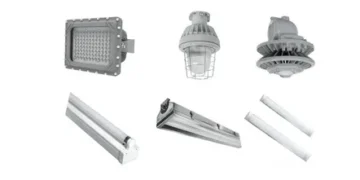Selling gold can be a great way to make money, but it’s important to understand the process and have the right documents ready. This guide will walk you through everything you need to know about selling gold, from understanding its value to completing a safe and legal sale.
Understanding Gold and Its Value
Types of Gold
Gold comes in many forms that you can sell:
- Jewelry (rings, necklaces, bracelets)
- Coins (collectible or bullion)
- Bars and ingots
- Gold dust or nuggets
- Dental gold
- Electronic scrap containing gold
Each type may require different documents and selling approaches.
Purity Standards
Gold purity is measured in karats (K):
- 24K: 99.9% pure gold
- 22K: 91.7% pure gold
- 18K: 75% pure gold
- 14K: 58.3% pure gold
- 10K: 41.7% pure gold
The higher the karat number, the more valuable your gold is. Most jewelry in the US is 14K or 18K.
Gold Weight Options
When selling gold, it’s weighed in troy ounces or grams:
- 1 troy ounce = 31.1 grams
- The price of gold is usually quoted per troy ounce
Legality and Regulations
Tax Implications
When you sell gold, you may need to pay taxes on any profit:
- The IRS considers gold a “collectible” subject to capital gains tax
- If you sell gold for more than you paid, you might owe tax on the difference
- For sales over $10,000, dealers must file a Form 8300 with the IRS
Legal Requirements for Selling Gold
The main documents you need when selling gold include:
- Government-issued ID: Driver’s license, passport, or state ID
- Proof of ownership: Receipts, inheritance documents, or a signed statement
- Item documentation: Original certificates, appraisals, or authenticity papers (for collectible items)
Preparing to Sell Gold
Appraising Gold
Before selling:
- Get your gold appraised by a certified appraiser
- Request a written appraisal document that includes:
- Item description
- Weight
- Purity
- Estimated value
Documentation and Certification
Gather these documents if you have them:
- Original purchase receipts showing when and where you bought the gold
- Certificates of authenticity for coins or collectibles
- Previous appraisal documents
- Grading certificates for collectible coins
- Insurance documentation that describes the items
These papers help prove ownership and can increase the value of your gold.
Choosing a Selling Avenue
Local Gold Dealers
Local dealers offer:
- Immediate payment
- No shipping costs
- Ability to negotiate in person
Documents needed:
- Government ID
- Proof of ownership
- Any certification documents you have
Online Gold Marketplaces
Online options include:
- eBay
- APMEX
- JM Bullion
- Specialized gold buying websites
Documents needed:
- Digital copies of ID (for verification)
- Item photos and descriptions
- Certification scans
- Bank information for payment
Auctions and Private Sales
For rare or collectible gold:
- Auction houses
- Collector groups
- Private buyers
Documents needed:
- Full provenance documentation
- Authentication certificates
- Ownership history
- Quality grading certificates
Selling Gold to a Dealer
What to Expect
The typical process:
- The dealer examines your gold
- They test for authenticity and purity
- They weigh the items
- They make an offer based on current gold prices
- If you accept, you complete paperwork and receive payment
Dealer Requirements
Most dealers will ask for:
- Photo ID: To comply with anti-money laundering laws
- Proof of address: A utility bill or bank statement
- Completed tax form: For transactions over certain amounts
- Signed bill of sale: Transferring ownership
Negotiating the Sale
Tips for negotiation:
- Know the current market price of gold
- Understand the dealer’s fee structure
- Be prepared to walk away if the offer is too low
- Get offers from multiple dealers
Selling Gold Online
Shipping and Insurance
When shipping gold:
- Always use insured shipping
- Get tracking numbers
- Document the contents with photos before sending
- Keep all shipping receipts and insurance documents
Payment Options
Common payment methods:
- Bank transfers
- Checks
- PayPal (for some platforms)
- Wire transfers for large amounts
Selling Gold at an Auction
Auction Houses
For valuable gold items:
- Research auction houses specializing in precious metals or jewelry
- Prepare a complete documentation package
- Understand the auction timeline, which may take weeks or months
Commission Fees
Auction fees typically include:
- Seller’s commission (10-25% of sale price)
- Insurance fees
- Listing fees
- Photography fees
Bidding Process
The auction process involves:
- Listing your gold with a reserve price (minimum acceptable price)
- Waiting for the auction date
- Completing transfer paperwork after a successful sale
Safety and Security
When selling gold:
- Never meet unknown buyers alone
- Use secure meeting places (bank lobbies, dealer shops)
- Don’t share too much personal information
- Be cautious of unusual payment methods
- Get receipts for everything
Reporting the Transaction
Record Keeping
Keep records of:
- Date of sale
- Amount received
- Buyer information
- Copy of any forms filed
- Photos of items sold
These records are important for tax purposes.
Tips for a Smooth Sale
Getting the Best Price
To maximize your return:
- Sell when gold prices are high
- Shop around for the best offer
- Separate valuable collectibles from scrap gold
- Clean your gold items before selling
- Consider breaking down pieces to sell separately
Staying Informed
Keep up with:
- Current gold spot prices
- Market trends
- Local dealer reputations
- Changes in tax laws regarding precious metals
Conclusion
Selling gold can be straightforward when you have the right documents and information. At minimum, always have your government ID and proof of ownership ready. For valuable or collectible pieces, gather all certification and authentication papers to get the best price.
Remember that different selling methods require different documentation, so plan ahead based on how you choose to sell. With proper preparation and the right papers in hand, you’ll be ready to turn your gold into cash safely and legally.



























